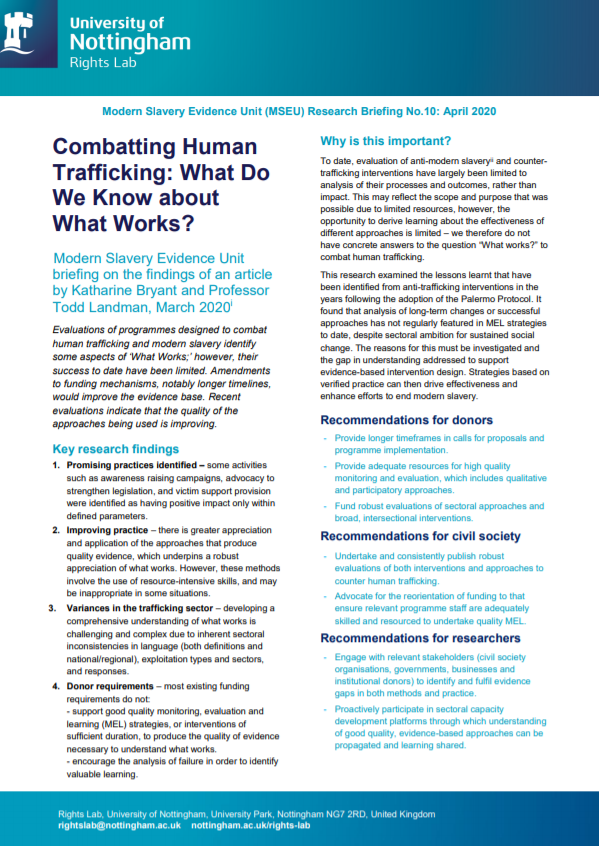Evaluation Report: Cyprus
GuidanceIn its third report on Cyprus, the Council of Europe’s Group of Experts on Action against Trafficking in Human Beings (GRETA) analyses trafficking victims’ access to justice and effective remedies and examines progress in the implementation of p...Read More

